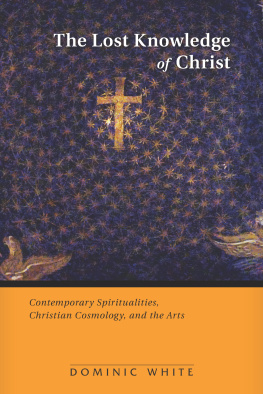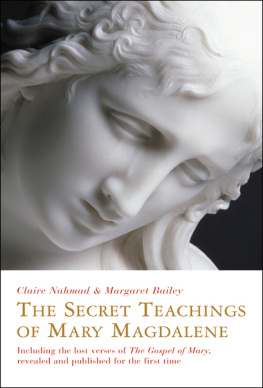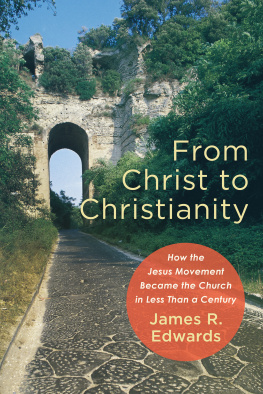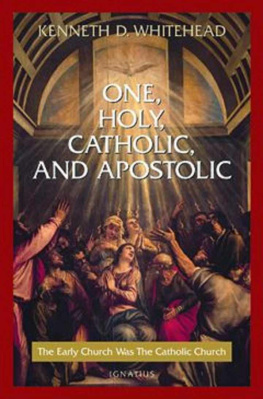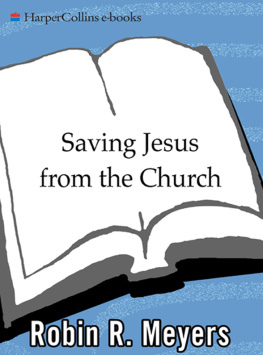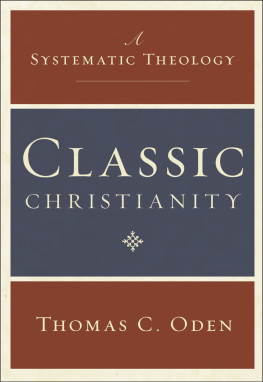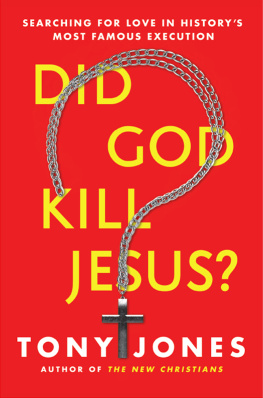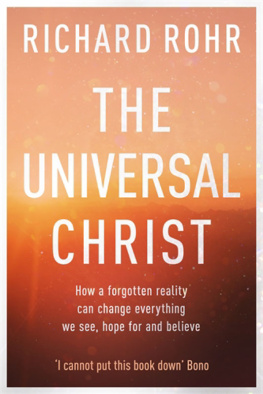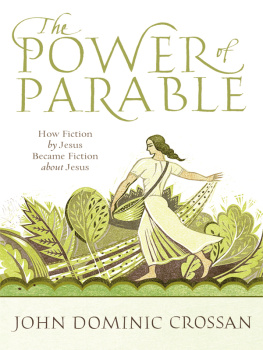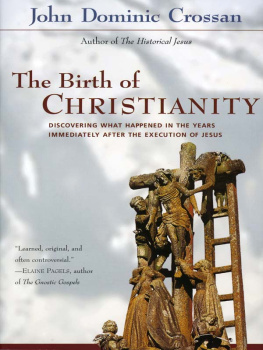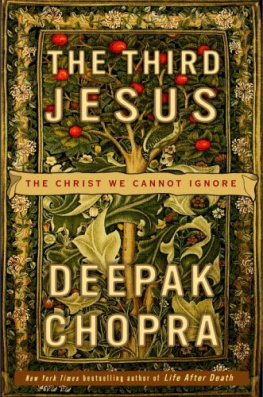Against a broad sweep of Christian tradition and nonreligious and contemporary spiritualities, Dominic White, warmly and tantalizingly, invites the reader to leave the prison of our heads and join the risen Lord and his community of divinized human beings, cosmic people. Opening up the great lost tradition of cosmology through five sourcesScripture, apocryphal writings, the Church Fathers, the liturgy, and Christian artthis dancing friar passionately explores liturgy and art, the great carriers of Christian cosmology, through different ways of knowing, escaping analysis. This is a book to return to for both information and to reconnect with lost treasure.
Elizabeth Baxter
Priest and Executive Director of Holy Rood House,
Centre for Health and Pastoral Care, and
The Centre for the Study of Theology and Health
So much of Christianity has been deprived of its context. Fr. Dominic White reconstructs this Lost Knowledgethe original cosmologyby leading us from lesser-known writings of the early Christians to the art, customs, and liturgy of later times. These are more familiar but now not fully understood because they too have lost their context. In this book we meet a brilliant mind, a warm heart, and a gentle humor that open up the somehow familiar world of our ancient cosmology and shed new (or old?) light on current disputes and concerns in the church.
Dr. Margaret Barker
Author of Temple Themes in Christian Worship
This is a courageous book. The author dares to venture into forms of spirituality which may sound bizarre and are easily dismissed and there detects a hunger for aspects of our Christian tradition which have been largely forgotten. It is scholarly, daring, and beautifully written, a rare combination.
Timothy Radcliffe, OP
Author of Stations of the Cross
In this brave and engaging book, Fr. Dominic White takes us on a voyage of exploration in search of the lost knowledge of Christ: a lost knowledge of the Cosmic Christ and a spiritual cosmology of angels and the heavens. Exploring hidden (apocryphal) scriptures and the deeper meaning of the Christian liturgy, and drawing on music and the arts, Fr. Dominic helps us discern a renewed and renewing vision of Christ and the cosmos and the place of the human within it.
The Very Reverend Archpriest Andrew Louth, FBA
Professor Emeritus of Patristic and Byzantine Studies
Durham University, UK
Nihil Obstat: Timothy Radcliffe, OP, censor deputatis
A Michael Glazier Book published by Liturgical Press
Cover design by Jodi Hendrickson. Cover image: Wikimedia Commons.
Excerpts from documents of the Second Vatican Council are from the Vatican website.
Scripture texts in this work are taken from the New Revised Standard Version Bible, 1989, Division of Christian Education of the National Council of the Churches of Christ in the United States of America. Used by permission. All rights reserved.
2015 by Order of Saint Benedict, Collegeville, Minnesota. All rights reserved. No part of this book may be reproduced in any form, by print, microfilm, microfiche, mechanical recording, photocopying, translation, or by any other means, known or yet unknown, for any purpose except brief quotations in reviews, without the previous written permission of Liturgical Press, Saint Johns Abbey, PO Box 7500, Collegeville, Minnesota 56321-7500. Printed in the United States of America.
The Library of Congress has cataloged the printed edition as follows:
Library of Congress Cataloging-in-Publication Data
White, Dominic.
The lost knowledge of Christ : contemporary spiritualities, christian cosmology, and the arts / Dominic White.
pages cm
A Michael Glazier book.
ISBN 978-0-8146-8269-2 ISBN 978-0-8146-8294-4 (ebook)
1. Biblical cosmology. 2. SpiritualityChristianity. 3. Christianity and other religions. I. Title.
BS651.W4248 2015
231.7dc23
2014023485
This book is dedicated to the beloved memory of
three people who cared about truth:
My father, Raymond Gerard White (19422013),
my aunt, Ellen Louise Brush (19522011),
and Stratford Francis Caldecott (19532014).
Contents
Acknowledgments
W riting, at its most basic level, is a solitary occupation. But if ever I needed proof that the human being is a social animal, it has been in writing this book. So many people have helped, knowingly or otherwise: first of all, my parents, who obtained such a wonderful education for me; the Dominican Order, for furthering that education, for supporting and challenging me; and all my family and many friends. The Bard School Christian artists fellowship was also a formative context for thinking about art, spirituality, and the cosmos.
Most of the research was carried out as part of my masters in theology of the arts at the Institut Catholique de Paris where this book was researched. Denis Villepelet was an inspirational head of department, gladly embracing dance as a research method. I must also pay tribute to Odile Celier for her marvelous introduction to images and how to look at them, and to my colleagues, a wonderful intergenerational community. Im grateful to Cambridge, Durham, and Newcastle universities for their superb and welcoming library facilities. The late, great Stratford Caldecott, gave me so much help and encouragement at the early stages. The Writers Society at Northumbria University has been a lively and encouraging community for trying out bits of this book. Margaret Barker has been unflagging in her inspiration and encouragement, and while well probably never agree about the book of Deuteronomy in this life, I would never have found half the sources Ive quoted without Margarets help. Nicoletta Isar is another generous scholar who loves the big picture and let me use hers. Also to my confrere Lawrence Lew for letting me use his beautiful photos, and to Monika Chmelova (again) for her fine drawings. And may blessings abound on whoever set up Wikimedia Commons, and to all its contributors, which has kept this book at a reasonable price.
Im especially thankful to friends who have read chapter drafts and made some very helpful comments: Colin Carr, Monika Chmelova (again), Alice Heans, Cathy Jones, Rudolf Loewenstein, Bess Twiston-Davies, and Zlata Vrabec. Big thank you also to Timothy Radcliffe, who stepped in at a critical stage of the project; Sarah de Nordwall, Silvia Caramella, and Quico Diaz (theological advice, good food, and good wine); Leonie Caldecott; Gabriella Debreczeni for her computer wizardry; Steve Day, Bob Ombres, John Patrick Kenrick, Jordan and Godwin Pullicino, Elizabeth St. John, Konstantin Pavlidis and Aniko Nagy, Satya Dunning, Gratiane and Gerhard Heusch, Mia Fox, Rabbi Aaron Lipsey, Rev. Sujatin Johnson, Roselyne Lauwick, Mark Vernon, Paddy Rylands, Rev. Christopher Lewis; Aidan Nichols, the Newcastle Philosophy Society God Group, Marie-Michle Pelliet; Eliot Smith and his dance company; the Cosmos multimedia dance team (some fifty of you now!); Capucine Soupeaux; Jane Walling and Fritz Wefelmeyer. And of course to my editorial team at Liturgical Press: Lauren L. Murphy, Hans Christoffersen, Colleen Haider, Patrick McGowan, Colleen Stiller, and Stephanie Nix.

Excerpt from O Faithful Cross, taken from The Divine Office: The Liturgy of the Hours According to the Roman Rite, vol. 2, 573* (no. 21).x Stanbrook Abbey, Wass.
At the time of publication, permission was still in process for the excerpt from

